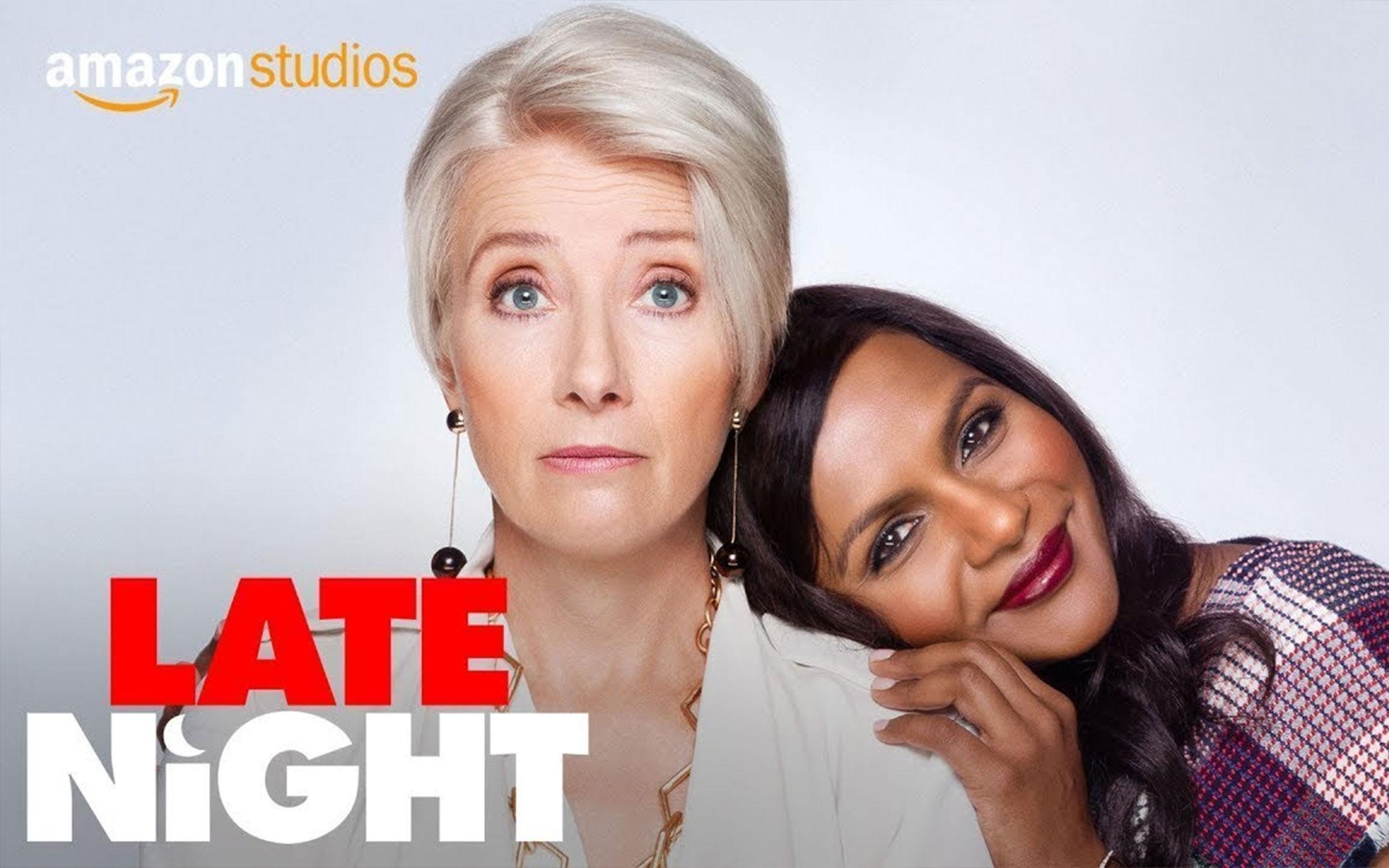Honestly, I would see Emma Thompson in anything. Since the 1990s and her winsome streak of Remains of the Day, Sense and Sensibility, and 2003’s Love, Actually, I have been a firm fan of her warmth, intelligence, and fantastic sense of humor. Seeing Late Night was a no-brainer, especially since it also starred the lovable and funny Mindy Kaling and the always-marvelous John Lithgow. My 18-year-old son is a big fan of Kaling’s, so we decided this was the perfect mother-son movie. My husband came along, too, for the popcorn and the laughs. He likes to laugh at movies. What could go wrong?
At first, we settled in quite happily, engaging with the plot about an aspiring writer named Molly (Kaling) trying to get her foot in the door of a late-night show starring her hero, chilly host Katherine Newbery (Thompson). As a family, we had just been to New York City and had the opportunity to be part of the audience for Seth Meyers’ monologue. As guinea pigs for his monologue, all we had to do was listen. If we didn’t laugh hard enough, the joke got the axe for the live show that night. It was fascinating to watch the young writers watching us watch Seth and taking copious notes.
Hence, we were extra invested in the story of late-night writers testing jokes. Yet something about the whole movie fell flat. Oh, don’t get me wrong—we liked it. I especially liked it because of my reservoir of goodwill toward Thompson, and also because I found the subplot about Molly trying to break into the male-dominated comedy world intriguing and touching. Being ostracized is something we can all relate to, especially a person of color such as Kaling. Race is an issue here as well: All of Molly’s colleagues heavily assume that she got the job because she is Indian. They can’t see past their indignation to her talent.
However, the movie never quite hits the emotional notes you want it to. Thompson’s Katherine is sour—too sour—and the writers never quite redeem her. You get the feeling that her career is the only meaningful part of her life, despite her ailing, loyal husband (an underused John Lithgow) and the potential for her to have friends among her staff. As a Christian viewer, I just wanted them all to regard each other and themselves with dignity and respect. Instead, the relationships were transactional and the pursuit of success ultimately hollow. This viewing experience was somewhat like consuming junk food—tasty in its own way but leaves you feeling a bit empty. (Amazon Studios)
About the Author
Lorilee Craker, a native of Winnipeg, Man., lives in Grand Rapids, Mich. The author of 16 books, she is the Mixed Media editor of The Banner. Her latest book is called Eat Like a Heroine: Nourish and Flourish With Bookish Stars From Anne of Green Gables to Zora Neale Hurston.

